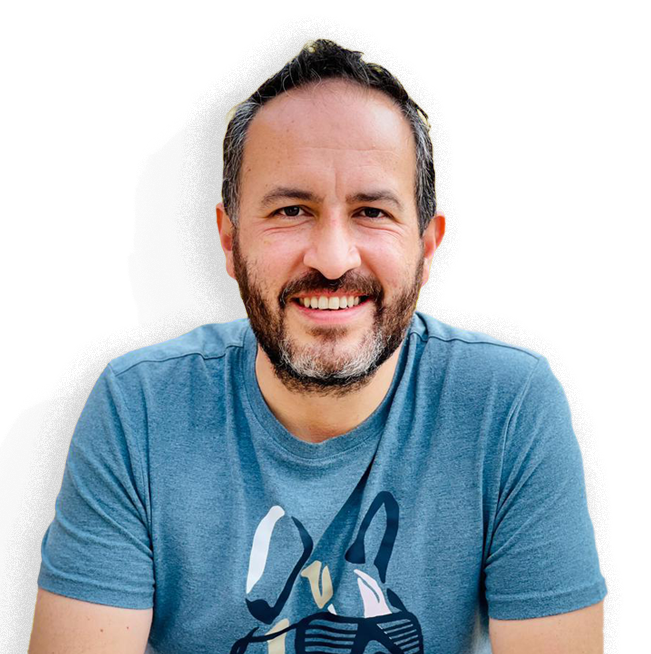 Climate change is a reality that is becoming increasingly important. Countries, companies and human beings must pay close attention as they are responsible for causing great damage to the environment. Becoming carbon-friendly must be a shared commitment to mitigate pollutants, improve people's quality of life, and have a better place to live.
Climate change is a reality that is becoming increasingly important. Countries, companies and human beings must pay close attention as they are responsible for causing great damage to the environment. Becoming carbon-friendly must be a shared commitment to mitigate pollutants, improve people's quality of life, and have a better place to live.
Companies must prepare and implement strategies to reduce their emissions and for this we interviewed Felipe Ramírez, Ex CEO of TRANSMILENIO S.A., who shared with us the bus pool renewal projects initiated by the Public Transport System Managing Entity in recent years, and how Steer in temporary association with KPMG and Pose Herrera Ruiz supported them throughout the process and also the challenges he has faced.
Felipe worked for TRANSMILENIO S.A. since 2016, where he began his work as a Management Advisor, then became Deputy Technical Manager and ended his work as CEO. He recently took office as District Secretary for Mobility, where he will continue to implement public policies on public transport, as the transport authority of the Capital District.
In early 2016, TRANSMILENIO S.A. had the challenge of structuring the bus pool renewal of the Phase I and II trunk operating concessions of the system that began operations between 1999 and 2000 and ended in 2018. The bus pool with about 18 years of operation generated great operational and environmental issues, due to the natural obsolescence of that vehicle technology, resulting in high levels of pollution for the city. One of the big challenges was implementing a clean bus pool without users noticing it. In order to achieve this, TRANSMILENIO S.A. with the support of FDN hired Steer, KPMG and Pose Herrera Ruiz with the aim of structuring the bus pool renewal, whose main recommendation was a change in the business model for service provision, and where a change of technology would become part of the bus pool to reduce gas emissions and reduce the environmental impact. The support provided by Steer, KPMG and PHR resulted in the award of the contract to make the change of technology for the trunk bus pool after helping to respond better to the observations during the tender and award stage, answering the doubts of the market and assuring that the structuring would come to a successful conclusion under the technical, economic and legal standards.
In the market, a very good response was obtained from the banks, investment banking and other external players because they understood that it was a new way of seeing the business model, and today this has become a model of success that other countries have adopted because it shares some risks that cannot be in a single contract, as it was handled before and additionally it has been an opportunity to find or approach new players (financial sector, investment banking, etc.).
According to Felipe, some determining factors that allowed technological advance are:
- Political will, meaning that the final objective of improvement for society translates into public policies to move all the players involved in the process.
- New technologies. Implementing them implies higher costs and cities must assume those costs as part of their financial costs, but they must be aware that this is reflected in improvements for citizenship and in the quality of service.
Thanks to the implementation of this technology change in the trunk bus pool, the benefits for citizens have been very positive. On the one hand, air quality was improved by reducing particulate matter by 80% and this was evidenced in a study made by Ecopetrol in conjunction with Universidad de Los Andes. On the other hand, reduction of the emissions of greenhouse gases, such as CO2, are very close to zero with electric buses, contributing to the reduction of the carbon footprint of mobile sources in climate change.
The model applied to the trunk system was replicated in the zonal component of the SITP, specifically in the Fontibon, Suba and Perdomo Zones, where the tenders for linking and operating the electric bus pool were structured, to complete the 100% implementation of the system and eliminate the Provisional SITP, which are mostly buses with a service life of more than 15 years. Although there is still a lot to work on and buses that need to be substituted, the impact that has been generated to date has been quite positive. The city currently has an awarded bus pool of 1,485 100% electric buses in the zonal component, making it the city with the greatest bus pool with this technology in Latin America.
Bogota has been a pioneer worldwide in implementing this type of initiative, this is something that should makes us pride, and the city will continue to progress towards it.
 Climate change is a reality that is becoming increasingly important. Countries, companies and human beings must pay close attention as they are responsible for causing great damage to the environment. Becoming carbon-friendly must be a shared commitment to mitigate pollutants, improve people's quality of life, and have a better place to live.
Climate change is a reality that is becoming increasingly important. Countries, companies and human beings must pay close attention as they are responsible for causing great damage to the environment. Becoming carbon-friendly must be a shared commitment to mitigate pollutants, improve people's quality of life, and have a better place to live.